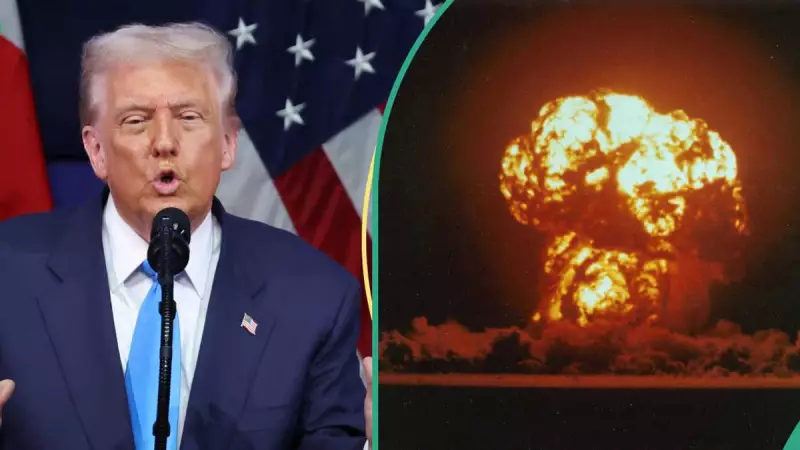
In a move that has sent shockwaves through international diplomatic circles, former President Donald Trump has reportedly given orders to resume nuclear weapons testing, ending a voluntary moratorium that has stood for over three decades.
End of an Era: Nuclear Testing Returns
The United States has maintained a self-imposed ban on nuclear weapons testing since 1992, a policy that multiple administrations from both political parties have respected. This latest development represents a dramatic shift in American nuclear policy that could have far-reaching consequences for global security arrangements.
According to sources familiar with the matter, the decision comes amid growing tensions with global powers and reflects the former president's "America First" approach to national security. The move is seen as part of a broader strategy to modernize the country's nuclear arsenal and demonstrate military readiness.
International Reactions and Concerns
Global leaders and non-proliferation experts have expressed alarm at this development. Many fear that the resumption of American nuclear testing could trigger a new arms race, encouraging other nuclear powers to follow suit and potentially undermining decades of non-proliferation efforts.
Environmental organizations have also raised serious concerns about the ecological impact of renewed nuclear testing. The previous era of testing left lasting environmental damage in several testing sites, and scientists warn that new tests could have similar consequences.
Strategic Implications for Nigeria and Africa
For African nations including Nigeria, this development carries significant implications for global security architecture. As a continent that has historically advocated for nuclear non-proliferation, African leaders may need to reconsider their diplomatic positions in response to this shift in American policy.
The timing of this announcement is particularly sensitive, coming during a period of heightened global tensions and ongoing conflicts in multiple regions. Security analysts suggest that this move could recalibrate power dynamics among nuclear-armed states and their allies worldwide.
What Comes Next?
While the order has been given, the practical implementation of nuclear testing involves numerous logistical and political considerations. The administration would need to navigate congressional oversight, international treaties, and potential legal challenges before any actual tests could occur.
This development marks a pivotal moment in nuclear weapons policy and raises fundamental questions about the future of global arms control agreements that have maintained relative stability since the Cold War era.





